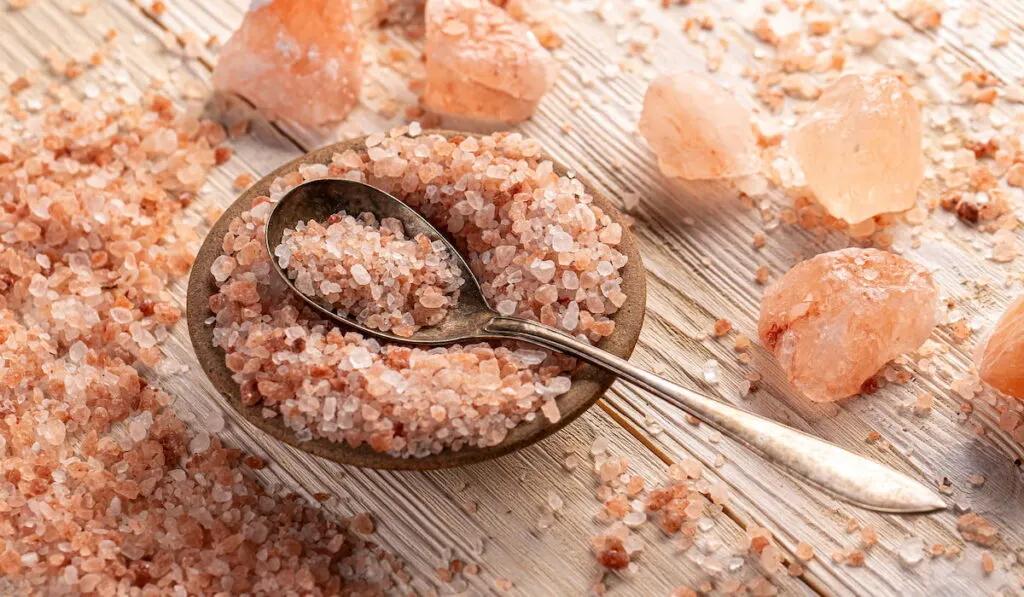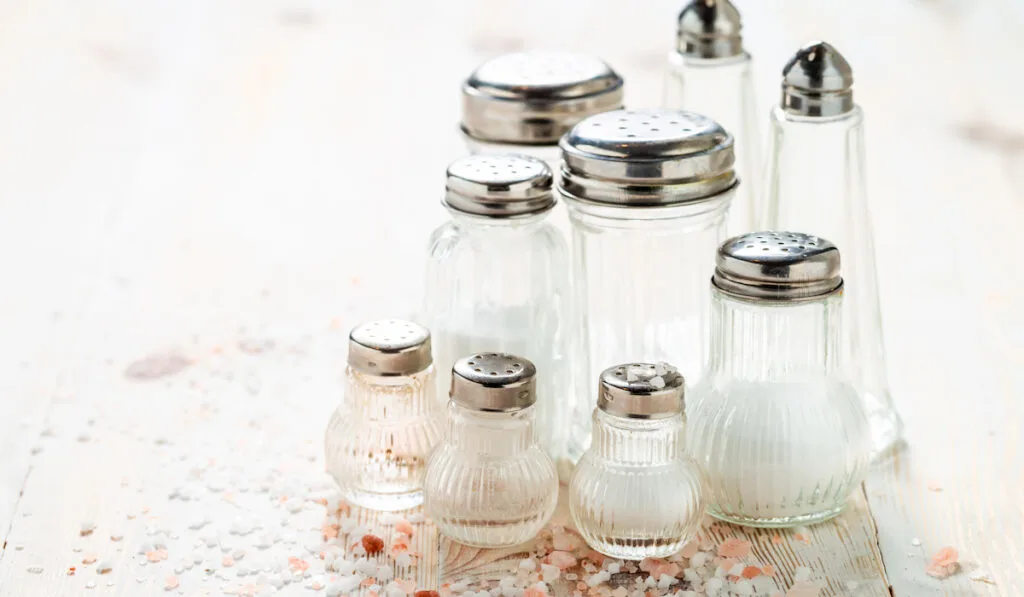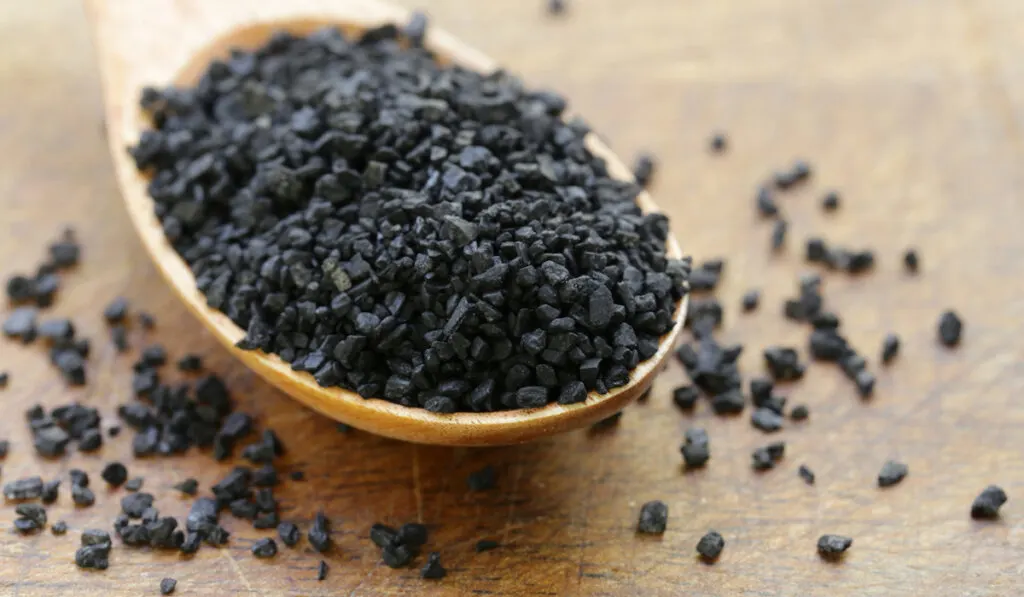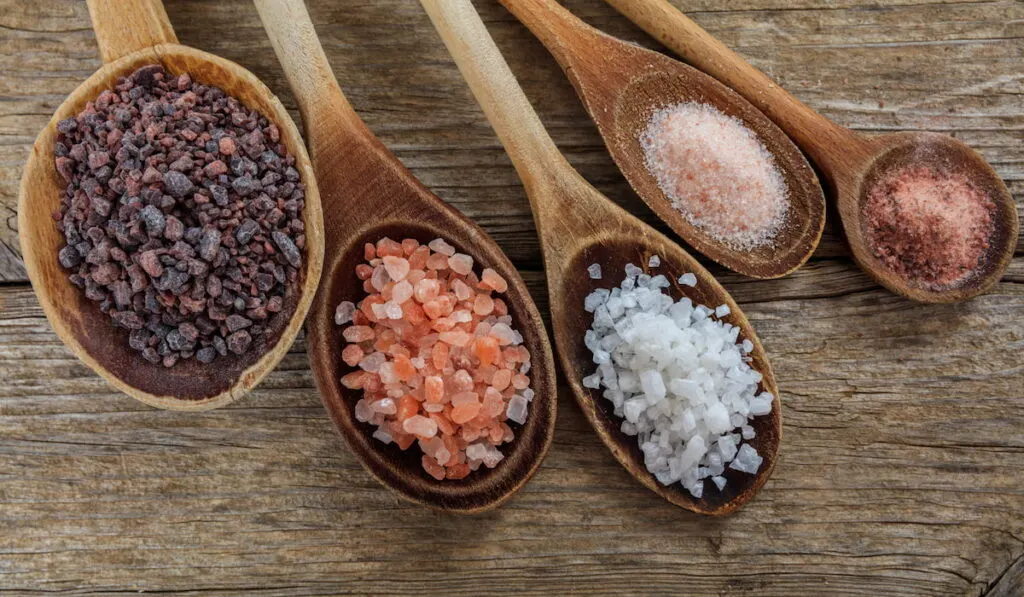If there is one flavoring agent you will find anywhere in the world, it is salt. As with most organic food items, flavoring agents usually spoil after a while. But does this apply to salt too? Let us see.
So, does salt go bad?
Generally, salt remains fresh indefinitely. In fact, salt is used in preserving other organic food items like fish, pickles, beef jerky, and many more.

The use of salt as a preservative and its ability to remain fresh is driven by its low water activity. In an environment with reduced water activity, most microbes that cause spoilage cannot thrive.
Hence, the ability of salt to not spoil. Nonetheless, if other ingredients are added to salt, they may lose freshness with time.
There are many types of salt in the world, and each has a different mineral content. You might be wondering if the general longevity of salt applies to all kinds of salt. Well, wonder no more as we answer that and much more in this post.
Does Salt Go Bad?
When stored properly, salt will remain fresh ad infinitum. Most microorganisms that cause spoilage cannot thrive in the presence of pure salt. So, microbial spoilage of salt is virtually impossible.
In any environment containing enough salt, there is reduced water activity.
In simple terms, water activity is a measure of the amount of free water available for use in substances. You could say that when there is reduced water activity, there will be a low level of unbound water.
Most spoilage microorganisms cannot thrive in an environment or substance with reduced water activity. At the same time, many chemical reactions cannot occur with low levels of unbound water.
So, the absence or suppression of water activity by salt is one of the main reasons it stays fresh indefinitely. This is also the same rationale behind using salt to preserve various food items.
While salt itself will not spoil, ingredients added to it may lose their freshness. So, let us consider the various types of salt and see if they go bad.
Lite Salt
Lite salt is basically salt with less sodium content than usual, and it should stay fresh indefinitely on its own. However, some brands of lite salt are iodized. Such types lose their iodine to oxidation with time.
On average, the shelf-life of iodine is 5 years. But even after this period, the salt itself would be okay for use. The only difference would be the depleted levels of iodine.
For people with certain iodine-deficient medical conditions like thyroid disorders, the level of iodine in salt is vital. In such people, getting a new batch of iodized lite salt after 5 years is advisable.
Iodized Salt
Iodized salt is table salt that contains controlled amounts of various salts of iodine. Some of these salts of iodine include sodium iodide and potassium iodide.
Please note that salts of iodine are different from table salt/common salt (sodium chloride).

While the table salt part of iodized salt will remain fresh for as long as you can imagine, salts of iodine would not.
On exposure to air, the salts of iodine are slowly broken down into iodine gas and water. So, over time, all the salts of iodine would be lost, and only table salt would remain.
As said before, the average shelf-life for iodized salt is 5 years. After this time, the product may not be suitable for iodine supplementation. But it would still be okay for use as a flavoring agent.
Himalayan Salt
Himalayan salt alone is all-natural, and it will stay fresh forever. Of course, you still have to store it properly.
For one, if you expose your Himalayan salt to moisture, the crystals may clump together and harden. But even at that, it would still be fit for use.
Sea Salt
As the name says, sea salt is salt from the sea. Like table salt, most of sea salt is sodium chloride. As we have implied for most parts of this article, pure salt (no impurities or added ingredients) will remain fresh forever.
But sea salt is not always pure. You will be able to tell from looking at it. The darker the sea salt, the more impurities it contains.
What does this mean? Well, it means sea salt may become unfit for consumption. Impurities like microplastics, heavy metals, and toxic fungi have been found in sea salt.
While the salt itself will not go bad, these impurities can make sea salt unsafe for consumption. Of course, commercially available sea salts are processed. So, they may not contain harmful levels of these impurities.
Black Salt

Like other types of salt, black salt will not spoil with time. But if it comes with additives, the additives may lose their freshness with time.
Margarita Salt
Margarita salt is coarse salt used to crust the rim of a glass for a margarita. Margarita salt is typically made from sea salt. So, its overall wholesomeness depends on the purity of the sea salt.
Margarita salt may also be made from other types of coarse salt. Ordinarily, if margarita salt is pure, it will not become unwholesome. But some manufacturers add dye to their margarita salt for aesthetics and for fun.
While the salt will remain good, the dye may fade over time, especially if exposed to light and air.
Kosher Salt
Kosher salt is edible, coarse, iodine-free salt. Kosher salt is also called kitchen salt, and it is generally used for cooking.
Kosher salt may be pure (containing mainly sodium chloride), or it may have anti-caking agents. In both cases, kosher salt will remain good if stored properly. Proper storage includes keeping it in a cool, dry, and dark place.
Can You Used Expired Table Salt? (Does Table Salt Have an Expiration Date?)

Technically, there are no expired table salts. There are only table salts that have passed their best before date.
Even when table salt passes its best before date, it remains safe for use. But if it contains additives, it may not be safe for use, depending on the specific additive.
All in all, most table salt additives are usually present in exceedingly small amounts. So, in many cases, their adverse effects are insignificant.
How Do You Know if Salt Is Bad?
Salt does not go bad. So, there is no need to know if salt is bad. But a salt product may grow old, and when it does, you may notice the following:
- The salt crystals become crusty.
- The color changes a bit.
- The salt product may also harden.
Final Take
In its purest form, salt will remain wholesome forever. However, when it contains additives, those additives may go bad with time.
Resources
- https://www.verywellhealth.com/eat-it-with-a-grain-of-salt-1958878
- http://www.eatbydate.com/other/spice-menu/how-long-does-salt-last-shelf-life/
- https://www.newsday.com/lifestyle/restaurants/burning-questions-does-salt-spoil-1.3888772
- https://saltsworldwide.com/does-himalayan-salt-expire/
- https://www.leaf.tv/articles/does-sea-salt-go-bad-or-expire/
- https://www.healthline.com/nutrition/different-types-of-salt#sea-salt
- https://doi.org/10.1016%2Fj.fm.2017.07.020
- https://www.delightedcooking.com/what-is-margarita-salt.htm
- https://www.bonappetit.com/story/what-is-kosher-salt
- https://www.stilltasty.com/fooditems/index/18262

